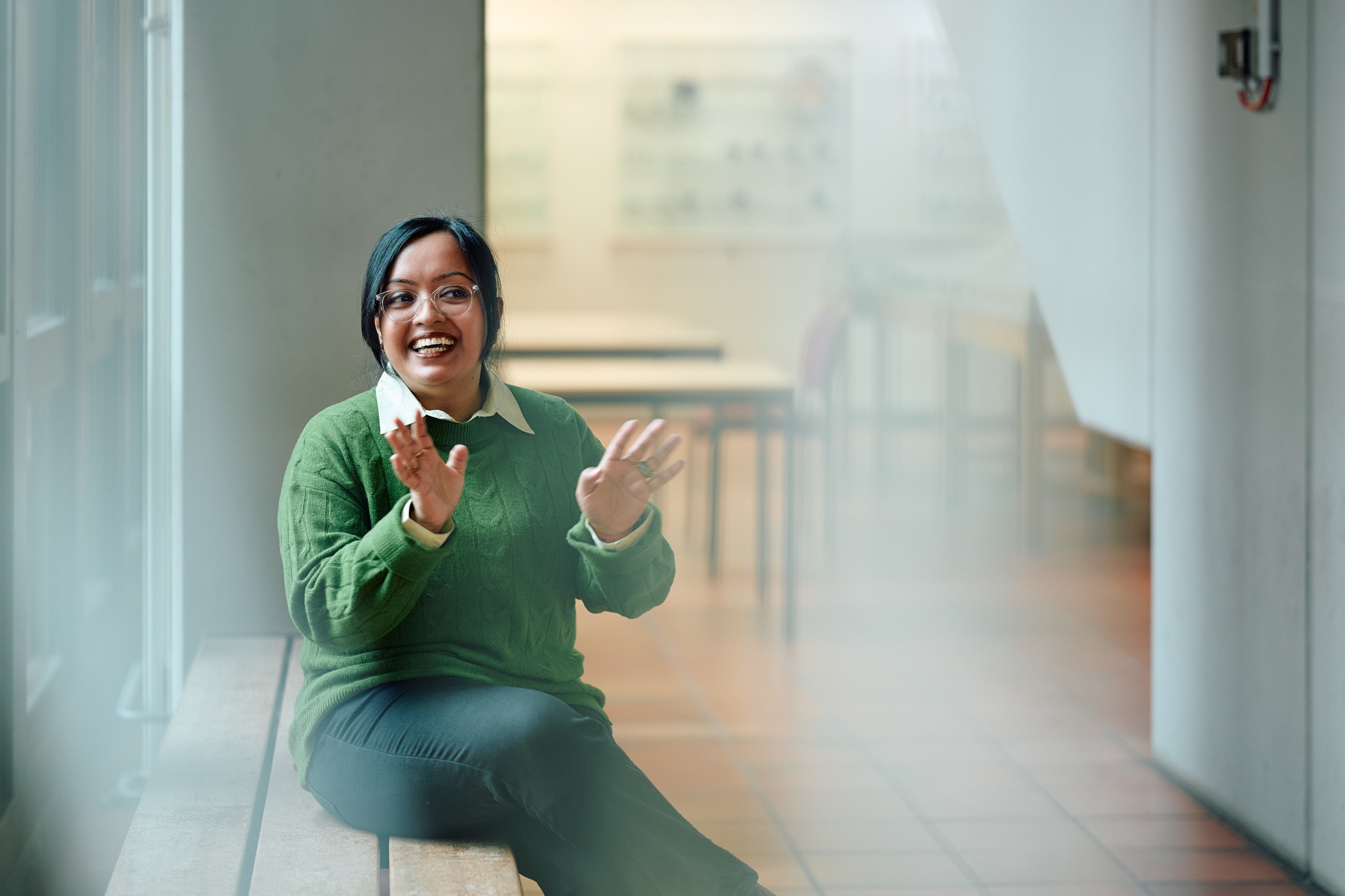
From Curiosity to Innovation: A Journey in Semiconductor Research with Dr Paromita Bhattacharjee
In the series “33 questions” we introduce, in no particular order, our WiRe Fellows who are currently working on a research project here at the University of Münster. Why 33? Well, if we think of the rush hour of life, it is kind of the age that lies in the middle. And we also like the number😉.
In today’s episode, we are speaking with Dr Paromita Bhattacharjee, a semiconductor researcher, whose journey into the field of electronics engineering was sparked by childhood curiosity. Her fascination led her to explore the interdisciplinary world of semiconductor devices and surface acoustic waves, combining acousto-optics, photogenerated charges, and precise device fabrication.
1. What motivated you to work in the field of semiconductor devices and surface acoustic waves?
I was always fascinated by the electronic devices and their parts at home, be it TV, radio or the antenna. The curiosity to know how they worked helped me to choose a career in electronics engineering field, and while diving deep into the research pursued by the alumni at my alma mater, I was motivated by the interdisciplinary scope of research offered by surface acoustic wave (SAW) devices
2. Describe your work in three words.
Device-fabrication, experiments, data-analysis.
3. Describe your research topic in three words.
Acousto-optics, photogenerated-charges, semiconductor.
4. A good electronics engineer specialized in ‘device-fabrication’ needs…?
According to me, one needs steady hands while fabricating a device and utmost patience for the step-by-step processes.
5. What does a typical (work) day look like for you?
A typical work day starts with checking emails, and mainly includes preparing samples for device-fabrication or taking experimental measurements with the fabricated devices. On the sidelines, reading research papers, analysis of experimental data and preparing drafts for required documents/articles also goes on.
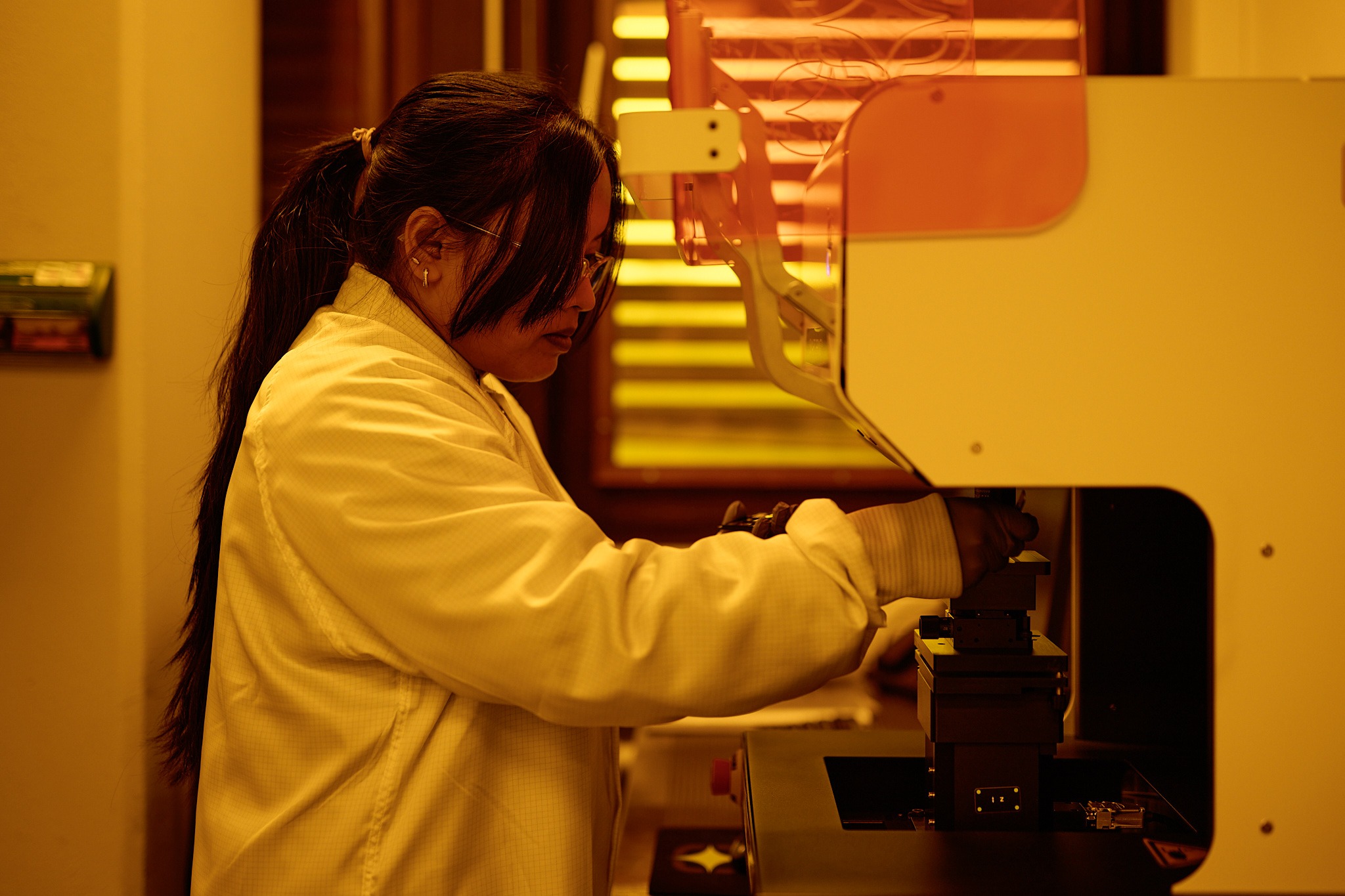
6. What is the best experience you have had as a scientist/researcher ?
For me the best experiences as a researcher include the opportunities for travelling to and exploring a new place, and making new friends and colleagues to work on new projects.
7. What was your biggest research disaster? What did you learn out of it?
My biggest research disaster was in my initial days as a PhD scholar, when I had fabricated my first device with aluminum metal electrodes and soon after few days, I suddenly saw that the samples were left with no metal part whatsoever, only had some whitish residue! I learned then that the aluminum electrodes got oxidized because there was leak in the vacuum desiccator and electrodes came in contact with air, a mistake I rectified later.
8. What keeps you motivated in your work day in and day out?
Knowing that doing scientific research is a carefully curated step-by-step process keeps me motivated.
9. Which (historical) important scientist / researcher would you like to have dinner with? What would you ask?
I would like it to be Nikola Tesla, his inventions and work speaks volumes about his genius mind, but it is his philosophical analysis and thought process that has always intrigued me and that is what I would like to ask him about. At the core of his philosophy was the belief of an interconnected power in the universe, which is exactly what our modern quantum physics is trying to delve deeper into.
10. If time and money were no object: Which research project would you like to do?
I would like to contribute towards a future where we can replace existing electronic devices with low-cost and environment friendly electronic devices having equivalent performance efficiency.
11. What is your favorite research discipline other than your own?
I would say biology, I have always had a liking for medical biology, especially. Interesting research is going on in the field and there’s also a lot of scope for integration with semiconductor devices.
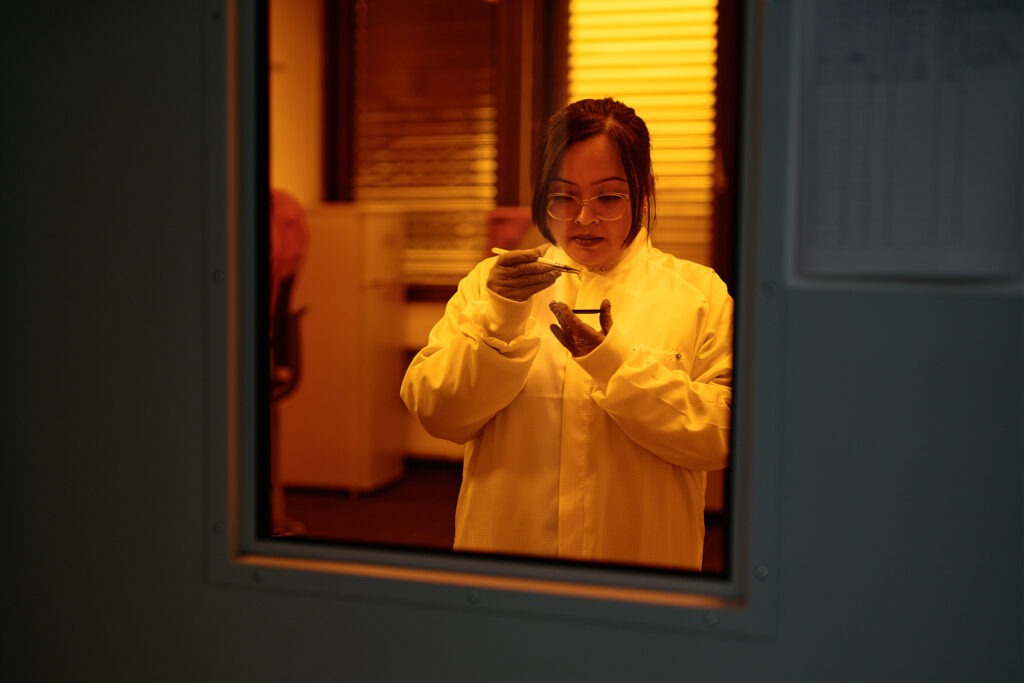
12. What do you consider the greatest achievement in the history of science / research / your field?
In my field, I definitely have to say the invention of interdigital transducer (IDT), the interlocking comb-like array of metal electrodes, by White and Voltmer at the University of California in 1965, which further led to the exploration of the propagation of SAW in piezoelectric elastic solid
13. Which experience in the world of science disappointed you most?
People pursuing a PhD just for the sake of getting a degree and not because they are motivated to do worthwhile research disappoints me the most.
14. What was the funniest moment you had in science?
Once I was looking all around for my tweezer in the lab while holding it in my other hand! Had a big laugh after I realized!
15. How did you survive your PhD time?
I always tried to keep myself physically engaged with yoga, dancing or running, it helped me to shed off the buildup stress. I was fortunate enough to have friends and colleagues during my PhD who helped me keep a calm and composed mind amidst ups and downs of research life. I also had constant support from my thesis supervisors and my family members.
16. What advice and tips do you have for future PhD students?
I would urge them to practice the art of ‘having a presence of mind’ which helps to work smarter in addition to harder. Also, they should always keep themselves updated with the state-of-the-art research going on in their field and keep their work progress saved as graphs/data in ppt format as it helps lessen the pressure at later stages. However, the most important thing is: never ignore your mental and physical health!
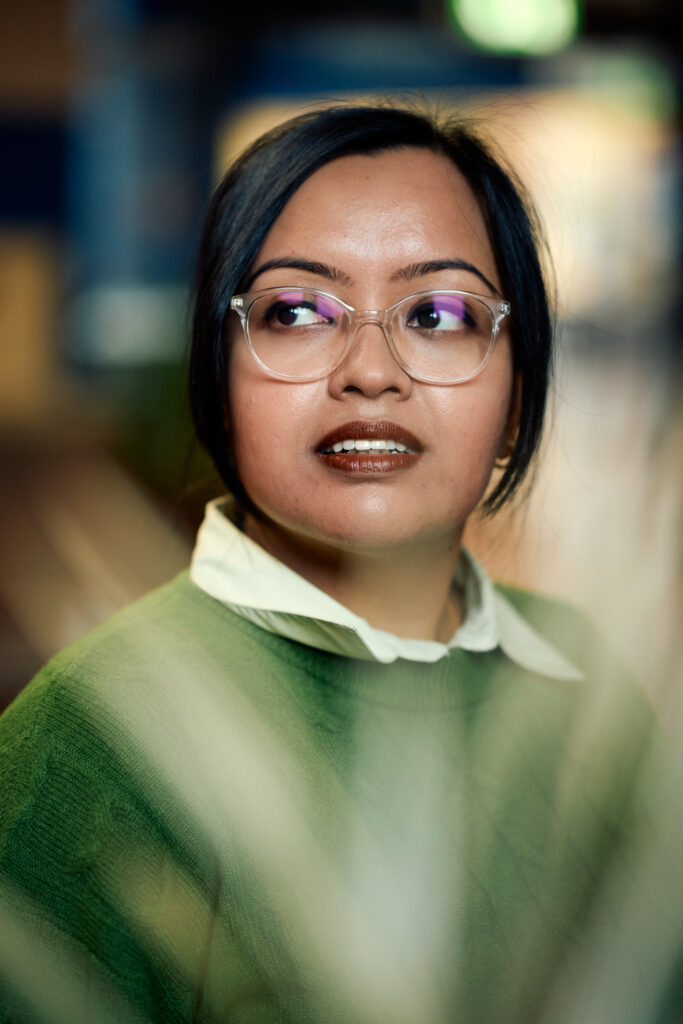
17. What direct or indirect relevance does your research have for society ?
Organic semiconductors are a low-cost alternative to the inorganic semiconductors which are mostly used in electronics that we use. Also, the deposition of these materials does not require high-end instruments. They also show tunable properties, flexibility and biodegradability. The long-term implementation of these semiconductors can reduce the overall production cost of electronic devices and provide the scope for wearable and disposable sensors and devices.
18. How did you imagine the life of a scientist / researcher when you were a high school student?
I imagined that scientists wore lab coats, worked with different solvents, petri dishes and microscope, and finally invented a lot of great things. A win-win kind of imagination.
19. Is it actually different? In what way?
I guess what I imagined didn’t cover up the failures in the process of optimization/re-iteration which mostly everyone has to go through and it needs utmost patience.
20. What do you like most about the “lifestyle” of a scientist / researcher? And what least of it?
Pros: I like that a researcher’s work life can always be flexibly set. You can fix your own time frame for the work at hand. It’s not necessarily a 9 to 5 job! You also get to visit various great universities and explore new places, travel a lot for conferences, workshops etc.
Cons: It’s a competitive field and you may face failures or lose patience which sometimes is mentally draining and it may affect physical health as well.
21. Do you think your career would have evolved differently if you were a man?
I won’t say my career would have evolved any different than what it is now. I haven’t faced any gender bias issues yet.
22. Where do you see yourself in 10 years?
On a lighter note, I would say 10 years older and wiser! 😀 Apart from that, fascinated with teaching and good research at work, and having good times with my family and positive inspiring people around me.
23. If you were the research minister of Germany, what would you do to improve the situation of women in science?
Extend the WiRe fellowship to other universities as well.
24.If you had a daughter, what would you advise her not to do?
If I have a daughter in future, I would ask her not to dodge a situation because of her being a girl, rather think of enacting a solution. Yes, man and woman might run their life on different biological and sociological clocks but that should never create any compulsion, especially at work, if she can alternately manage it.
25. How would you explain your research area and topic to a child ?
My research encompasses the study of semiconductors, which are materials having an electrical conductivity between conductors (generally metals like aluminum, copper, gold, etc) and nonconductors or insulators (such as most ceramics). Electrical conductivity is all about how easy it is for electricity to pass through a material. For example, if we take an electrical circuit consisting of a bulb, cell, copper wire and a switch, and we connect a piece of wood to the circuit, then the bulb does not glow indicating that wood is a poor conductor of electricity.
With my current study I am trying to learn about different properties of ‘organic semiconductors’ which are the low-cost alternative to the other semiconductors mostly used in our electronic gadgets such as computer, TV, cellphone, radio, camera, etc. Organic materials also show flexibility, like a bendable plastic or metal foil, and biodegradability, which means they are generally good for environment. The long-term application of these semiconductors can reduce the cost of future electronic gadgets.
My research looks at how miniaturized earthquake like waves called ‘surface acoustic waves (SAWs)’, travelling on the top surface of piezoelectric materials (which convert an electric input to a mechanical force), can help these organic semiconductors by improving their efficiency for electronic and optical use.
26. What is the biggest challenge for you when it comes to balancing family and career?
Leaving my family behind while travelling for work and staying away from them.
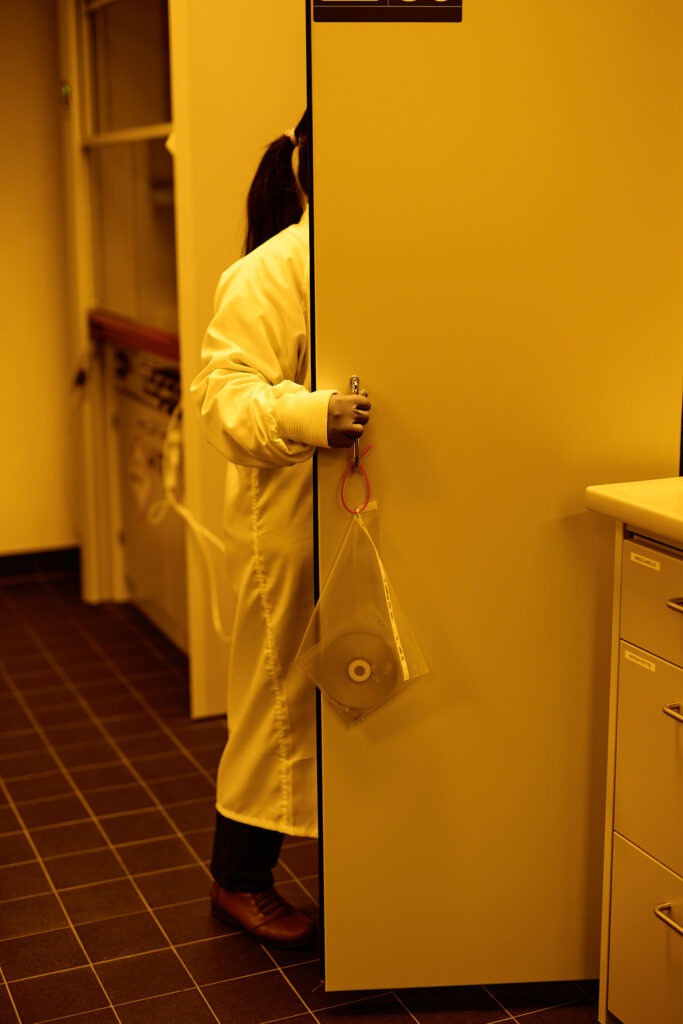
27. How do you master this / these challenge(s)?
I talk to them and see them via video call multiple times during the day 😊 but it’s still difficult to stay away from them.
28. How often do you as a friend / partner / mother / daughter feel guilty when you have to meet a deadline – again?
Have been a lot of times! But now I try to keep dedicated time frames for work, family, hobbies and everything else. Also, I always try to make up in any way possible if I am letting anyone down because of my work.
29. How did you imagine your future as a child? What profession did you want to pursue?
I always wanted to pursue a career in teaching, and I still want to do that along with pursuing research in academia.
30. What is your favorite German word? Why?
My favorite German word is “Genau”, because this is the first German word that I heard the most in all public places, and it caught my attention. When I looked into the meaning of this word, which is “exactly”, it made me think that heavy use of this word means most people here must agree with each other, which is sweet.
31.What makes you most happy about the world?
The natural wonders of this world amazes and makes me the happiest. It’s a beautiful and resourceful world we should preserve.
32. What is your favorite place to relax from research?
Any place close to nature is always my first choice, specially somewhere with water bodies around. My go to place in the past has always been in the state of Meghalaya in India, which is filled with numerous beautiful waterfalls and natural forming pools.
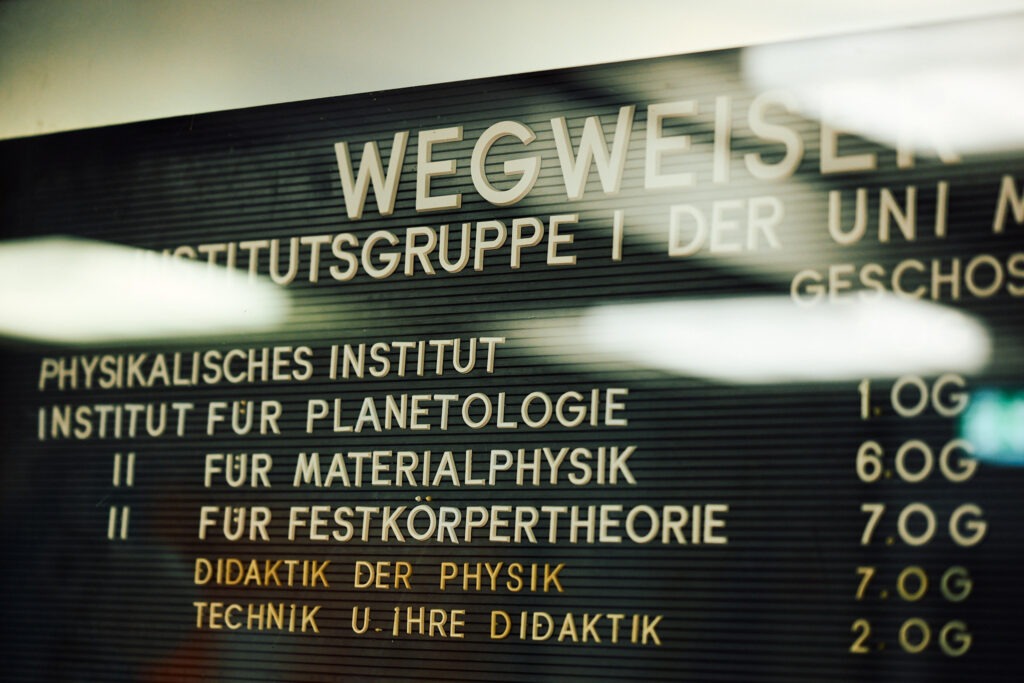
33. What is your favorite place in Münster ?
Since I like spending time near water, I like both the Lake Aasee and the canal harbor in Münster. However, my favorite place would be the canal, it’s close to my apartment and the history behind the canal intrigues me.
